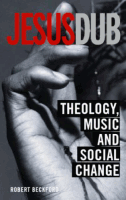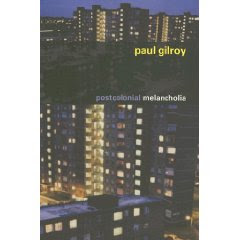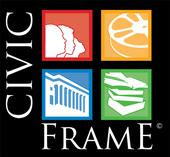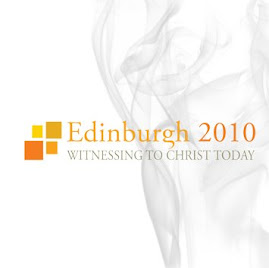The day before yesterday I bumped into our postman. He looked really gloomy. 'I'm really sorry' he said 'But the BNP have got the royal mail to deliver their election leaflets. It makes me feel dirty....as if some of the people I deliver letters to just don't matter...'

Our postman was right...The splintering of marginalised urban communities, the demonising of ’the stranger’, the scapegoating of the British-Muslim community since 9/11 and the political abandonment of progressive multiculturalism sustain a model of citizenship that is premised on this ethic of oppressive difference.
We get divided into camps....religious as well as cultural....and when we are divided the only people that win are the BNP. But life's not like that is it? Those of us who live in big cities know just how everyday diversity is. We live in what's been called the 3rd space...different identities fusing, changing, re-creating something new in the city.
How can people of faith [often just as guilty of camp mentaility and race based thinking as anyone else] move beyond thinking it's OK in 2009 for a group of white dancers to come to a church social 'blacked up'? [It didn't happen in case you'er wondering but only because the Minister said 'No way.'] We need to move beyond saying 'Isn't diversity wonderful, just like a beuatiful rainbow.' Diffference isn't always wonderful...Let's be honest there are ways of thinking and acting that we say are OK but we recoil from because they are oppressive. So let's get real. Maybe what I want to call 'liberative difference' can help us out and help to put the BNP in their place....What do I mean?
Just this....As we engage in the life of the city and the life of our faith communities
Does the person we engage with accept or resist the dynamism of plural urban life? Do they see their own take on life as something that is open to change/challenge? Do they accept that people with other ideas/cultural stories are partners in struggle [or are they seen as competitors?] Do they see difference as a sign of life or a portent of doom? Are they ready to share with others in a coalition for social justice?
I really do believe that as I read my own scriptures and see the way in which Jesus depicts difference as gift that it can become a motor for real progressive change in the city. Not change that's a mask for conversion, but change that respects those with whom we share the city as partners, or even sisters and brothers....That's what I see in Jesus and that's why it makes my blood boil when the BNP parade around as if they were Christians....Let's be clear you cannot be a racist and a Christian....No ifs, no buts...That's why I get angry when my own Methodist Church is too slow and too hesitant to be up front with every single Methodist in Britain: 'Voting for the BNP is not compatible with being a member of the Methodist church...Choose one or the other but if you choose the BNP then you will no longer ne a part of the Methodist church.' Let's stop mucking around!
Liberative difference is built upon the divine bias to the stranger and the excluded
Liberative difference is a hermeneutics of the excluded and the demonised.
Liberative difference expresses the fluid, intra-contextual character of urban society.
Liberative difference enables a new conversation about ‘place’ as significant and multiple.
Liberative difference moves urban faith and politics beyond all forms of raciology
Liberative difference resources shared liberative praxis.
Liberative difference dubs prevailing antagonism towards difference, which becomes the driving force behind inclusive, networked liberative praxis.
Liberative difference enables a new critical multiculturalism to emerge which recognises the importance of the development of a progressive critical white identity.
Liberative difference unmasks and resists theological camp mentality.
I want to be able to look my postman in the eye and say, 'I said No to the BNP. So can you.' Don't we all want the same?


















No comments:
Post a Comment